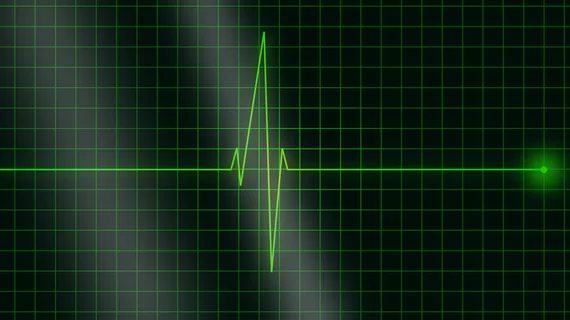AI model reduces false-positive findings detected by implantable loop recorders
An AI algorithm could limit false-positive AFib episodes detected by implantable loop recorders (ILRs), according to new research presented during the 2020 Heart Rhythm Scientific Sessions.
The study’s authors tracked more than 300 consecutive patients who received an ILR for known AFib or cryptogenic stroke (CS), with all applicable ECG readings being uploaded and analyzed by the AI model. Cardiologs, the technology company behind the solution, collaborated on the study with Valley Health System.
Overall, the researchers found that the Cardiologs algorithm reduced the number of ILR-detected AFib episodes in the known AFib cohort by 62%. The number of ILR-detected AFib episodes in the CS cohort was reduced by 69.7%.
“The use of ILRs has been a great addition to the long-term heart monitoring tool set,” lead author Suneet Mittal, MD, Valley Health System’s director of cardia research, said in a statement. “But the large amount of data associated with extended monitoring and specifically the high level of false positive AF detections have created a considerable burden in the management of ILR data. The Cardiologs' AI solution offers remarkable promise to alleviating the heavy clinical burden associated with managing ILR patients.”
“We are excited about the continuously expanding use of the Cardiologs AI platform,” added Yann Fleureau, Cardiologs’ co-founder and CEO. “It's reaffirming to receive even more clinical validation—demonstrating the tremendous value and benefits that come with using the solution. We look forward to working with ILR users around the world in the months to come.”
The full study from Mittal and colleagues is scheduled to be published in HeartRhythm in the near future.

